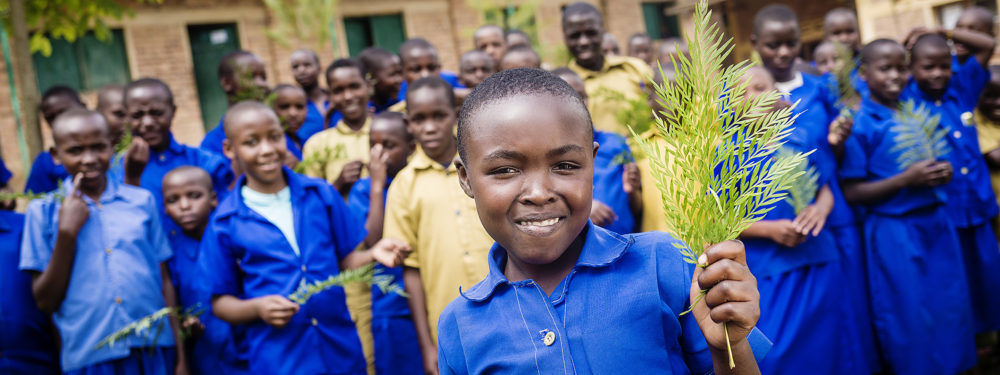The world marks children’s Day
Date
June 16, 2020
Today, we celebrate YOU the African child who is full of life, has a bright future ahead, and as always resilient to the challenges that life has presented in their life path. The theme of The International Day of the African Child -2020 “Access to a Child-Friendly Justice System in Africa”. This comes at a time when the continent is fighting COVID 19 and child rights violations are being reported regularly. The day focuses on addressing the numerous challenges children in Africa face. It is hoped that a child-rights based approach can be adopted with the aim of making the judicial system child-friendly that will ensure access to justice for children in Africa.
We also celebrate 30years of The African Charter on the Rights and Welfare of the Child that recognizes your rights are respected and upheld at all times. This year’s celebration comes at a time when the world is battling a pandemic and children are away from school which has further increased their vulnerability to rights violations at home. This has negatively affected children who are now exposed to various rights violations with limited access to justice. Children living with disabilities have not spared given that they have special needs that may be out of the reach of poor households. It is our hope that all children will be safe and experience their childhood free of fear and intimidation. That they will live to enjoy their basic rights to participation, survival, development and participation. We urge our partners to be conscious and aware of the situation of children in their midst as they endeavor to put safeguards in place to keep them away from harm.
COVID 19 Impact on children and youth
COVID 19 was detected at a time when children where in school which necessitated closure as a measure to control the spread of the disease. This abrupt closure was meant to keep children safe at home. It is now evident that children (girls and boys) especially in rural areas have been exposed to various forms of rights violations such as abuse (physical, mental and sexual), child labor and exploitation at home where they are supposed to be safe. In farming communities, it is common knowledge that some parents engage children in child labor on farms during planting, weeding, harvesting and even marketing in the pretext of developing life skills with little disregard to a child’s wellbeing (social, cognitive and physical development).
Help might not be forthcoming during a time when there is limited mobility and authorities have prioritized COVID-19 prevention measures are adhered to.
Chances are high that by the time schools re-open there will be an increase in cases of early pregnancies especially among teenage girls in rural areas as witnessed in West Africa. During the school closures of Sierra Leone’s Ebola outbreak, “a reported increase in adolescent pregnancies during the outbreak has been attributed largely to the closure of schools.” (UNDP 2015). Bandiera and others find that in villages highly disrupted by Ebola, girls were “10.7 percentage points more likely to be become pregnant, with most of these pregnancies occurring out of wedlock”. Youth who were accustomed to meeting in groups are now expected to adhere to government directives that include social distancing and a ban on social activities. This directive limits youth interactions which are crucial for human development.
Vi Agroforestry is dedicated to ensuring children’s rights, welfare and physical security are recognised, safeguarded and protected in accordance with international standards as documented in our policy. We are working very closely partner organisations in the region as on the situation of children and the resultant effects during and post COVID -19. We urge our partners to be conscious and aware of the situation of children in their midst as they navigate through the challenges of providing for their families.